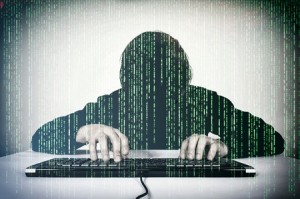PNP anti-cybercrime group sees rise in internet offenses

Cybercrime (INQUIRER FILE PHOTO)
With the surge of cybercrimes, the police unit tasked to counter internet crimes and pursue internet offenders is set back by too many laws and too few means.
According to Senior Supt. Michael Angelo Zuñiga, chief of the anti-cybercrime operations division, since 2013 there have been 1,681 cyberbullying complaints filed with the Anti-Cybercrime Group (ACG).
Speaking to reporters at a briefing on Wednesday, Zuñiga said, “when I studied the statistics from the time of our creation, the incidents are rising. The reason is we have not yet recorded all and we are not even scattered all over the country yet.” The ACG was formed in 2013.
Zuñiga pointed out that the ACG only has five strategic field units which cover 10 regions and only 144 of the ideal 162 personnel.
He predicted a rise in cybercrime cases as soon as more people are made aware of the reporting system, saying, “we have not yet captured all offenses because we do not have that capability.”
Article continues after this advertisementWhile cyberbullying complaints do not reflect the complete cybercrime situation in the country, they do provide a general picture of how the ACG works.
Article continues after this advertisementCyberbullying comes in the form of online libel, threats, unjust vexation, and violation of the child abuse act.
Currently, he said, the ACG is looking to procure the latest digital forensic equipment to boost the unit’s crime solution efficiency.
Zuñiga pointed out that cyber investigation is very different from typical investigations conducted by other police units. “The crime solution efficiency of territorial units is at 80 or 90 percent but for us it’s 10 percent because of the hardship we are facing when we investigate cybercrime. Because there are lots of problems,” he explained.
The ACG official said among these problems are the laws that usually run interference on their investigations.
He said that the PNP has raised proposals for amendments to existing laws that hamper their job to go after and prosecute cyber criminals.
Apart from existing laws, according to Zuñiga, there are existing treaties with other countries that need to be “looked into and revisited” to enable the “expeditious resolution” of cyber investigations.
He assured that these are concerns that are already being acted upon by the PNP, saying, “there are already moves in Congress to amend the laws to replace provisions that would help our (system of) investigation.” JPV